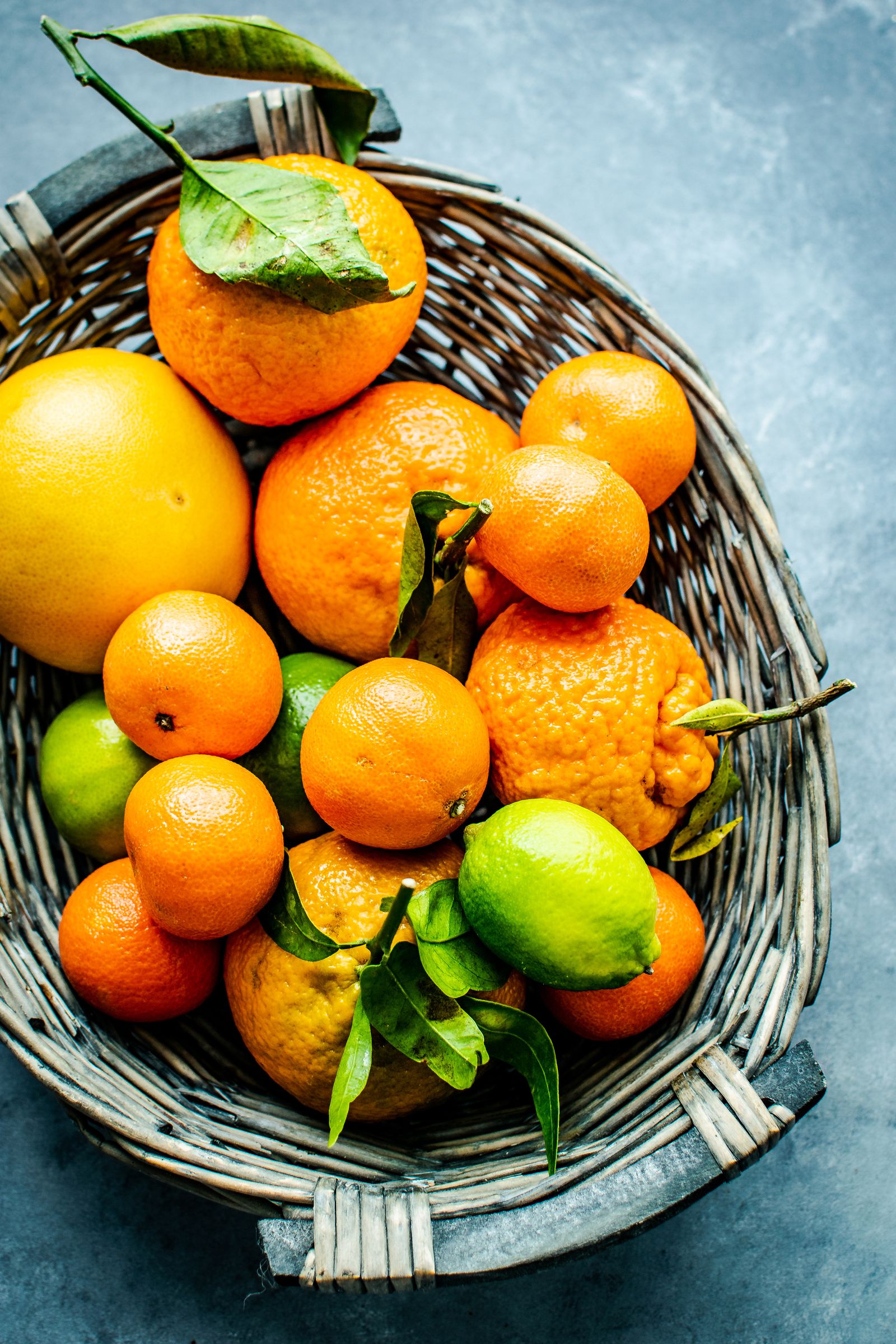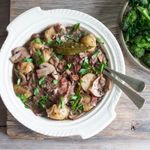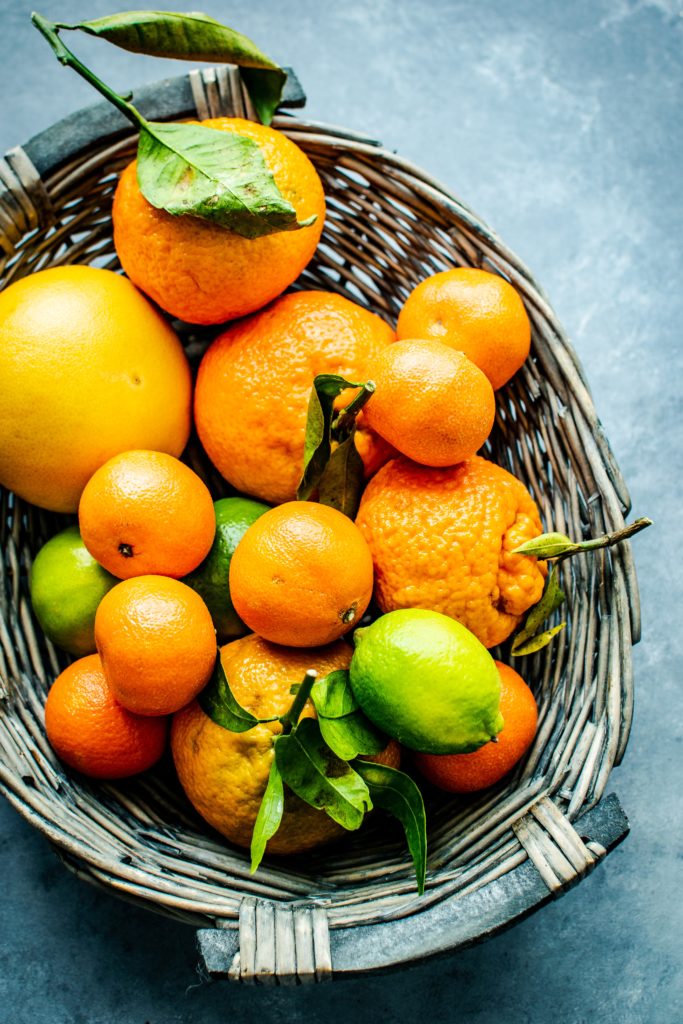
The Health Myths of Convenience
Leading Functional Doctor Dr. Sharief Ibrahim FRCP, IFMCP, explains the food as medicine science behind eating the whole organic orange rather than processed, shop bought concentrated orange juice. If you love healthy eating features, you will find this fascinating. Dr. Ibrahim spent 35 years in clinical experience in the NHS as a hospital consultant. Now he practices functional medicine in London and Weybridge at The Vitality Clinic
If you think a glass of orange juice is healthy, think again!
Orange Juice from Concentrate is Addictive and Devoid of Proper Nutrients
The traditional English breakfast has always included a glass of orange juice—the supposedly ‘healthy’ option. In general, orange juice is considered to be part of a healthy lifestyle, particularly to boost your energy levels and get you off to a good start first thing in the morning. But despite popular belief, processed orange juice (from concentrate) is actually very toxic, addictive and inferior compared to eating a whole orange, in terms of nutritional value and health benefits.
Here, we’ll discuss a popular misconception about the right way to gain goodness from the ‘sunshine fruit’ and answer a couple of pertinent questions:
What is the difference between orange juice and the whole orange? Should we encourage drinking orange juice in the morning?

The Funtional Doctor Discusses Dangers of High Fructose Corn Syrup
Unlike the natural whole orange, conventional processed orange juice is sweetened by high
The Perfect Balance, As Nature Intended
Natural whole oranges also contain fructose and glucose in equal amounts but are also rich in nutrients such as vitamins, minerals, and fibre. These vitamins include vitamin B1, pantothenic acid (B5), vitamin C, folate, and vitamin A, and minerals like calcium, copper, and potassium. Therefore these not only provide you with energy but nourish the body too, providing you with some of the essential vitamins and minerals you need to stay healthy.

However, although these vitamins and minerals are good, the essential nutrient that makes the whole orange a natural and nutritious powerhouse is fibre. There are two types of fibre, soluble and insoluble, and each plays an important role in the gut. Soluble fibre makes globules around the glucose molecule, while insoluble fibre forms a continuous layer along the gut wall to slow down glucose absorption and prevent insulin spikes. This means the energy you get from a whole orange is sustained over time, not like a sugar high experienced when eating refined sugars.
Functional Medicine Loves The Fiber Powerhouse
Fibre is not digested in the small intestine and hence, it passes intact into the large bowel. Consumed by the friendly gut bacteria, fibre is converted into short chain fatty acids. These nourish the large gut wall and have been found to prevent diseases, particularly cancer.
In contrast, HFCS contains equal amounts of glucose and fructose. Glucose is the universal source of energy. It stimulates the pancreas to produce insulin—the hormone that opens the gate for glucose to enter every cell in the body and provides us with energy.
The Obesity Link
However, fructose does not stimulate insulin secretion and is metabolised exclusively through a specific pathway in the liver. Here, fructose is converted into triglyceride fats, which are then stored as fat by the body’s cells.
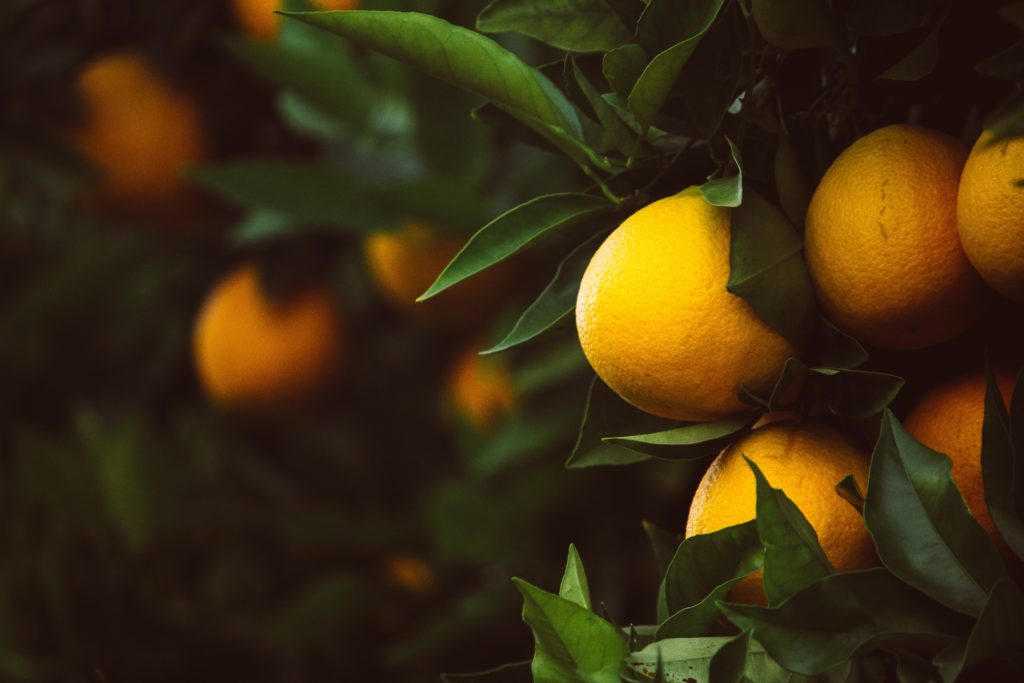
Fat accumulates in the liver and other viscera and results in fatty livers and central obesity. Leading to metabolic syndrome in both obese and slim people that increases the risk of diabetes and cardiovascular diseases. This is what is meant when people refer to ‘skinny fat’ when someone appears slim on the outside but carries hidden fat around their internal organs. Fructose is also converted into uric acid, which can result in hypertension and gout.
By now you may be thinking ‘OK conventional orange juice is bad why don’t we replace it with
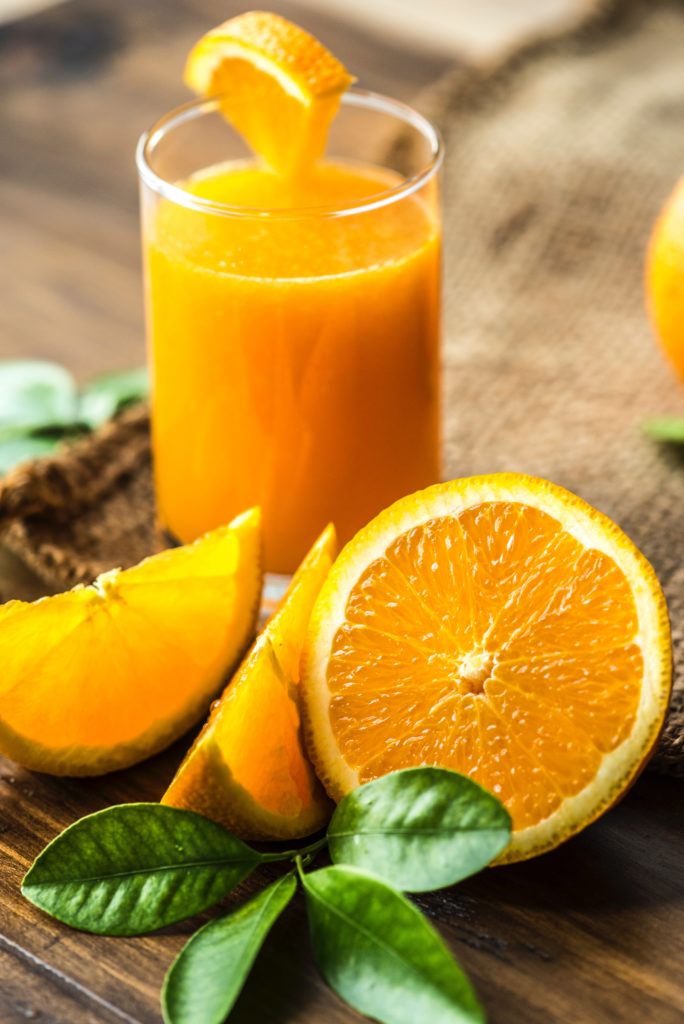
No doubt, freshly squeezed orange juice is a better option than processed, concentrated orange juice as it contains most of the natural orange’s nutrients. However, although juicing oranges retains the vitamins and minerals, it removes the fibre. The better alternative is to use a blender to produce a whole orange juice that contains everything, including that essential fibre.
Blending is Better than Juicing Oranges
In summary, processed orange juice is not a healthy option. This is because it is loaded with energy, but is devoid of nutrients such as vitamins, minerals, and fibre. Instead of getting the nutritional benefits you no doubt believe you’re getting, you are actually getting empty calories that can have a detrimental impact on your health.

I would recommend you get the most nutritional benefits by eating a whole orange for breakfast. Make time to enjoy the ritual of peeling an organic orange. Or if you prefer to drink it as orange juice, using a juicer will provide your body with all the nutrients, except the fibre. Using a blender to make orange juice is even better, as it will provide everything that the natural orange contains, including the essential fibre.
Save the Sweet Stuff for the Afternoon
I hope this is enough to convince you to switch from processed fruit juice with added HFCS and enjoy a whole orange or blended orange juice instead. Furthermore, I hope this has also demonstrated why you should avoid sugar and carbohydrates in the morning; as at this time your insulin sensitivity is low, so sugar and carbohydrates are immediately stored as fat. Instead, leave them for the afternoon, when your insulin sensitivity is optimal, and start enjoying a healthier life.

Dr. Sharief Ibrahim FRCP, IFMCP – The Functional Doctor and Consultant – The Vitality Clinic, London.
By Guest Contributor – Functional Doctor and Physician Dr. Sharief Ibrahim FRCP, IFMCP Dr. Ibrahim has 35 years of clinical experience as a consultant in general, acute and geriatric medicine in the NHS. He trained and qualified in Functional Medicine with Dr.Mark Hyman in the US and runs the Vitality Clinic in Harley Street London and Weybridge. Dr. Ibrahim specialises in treating patients with mid and late-life diseases including diabetes, metabolic syndrome, fibromyalgia, cancer, dementia and chronic inflammation with a combined approach of medical diagnosis, science, genetic testing, and food as medicine super nutrition. Visit the website for details or to book a consultation. The Vitality Clinic
Here is an inspirational long-form feature interview by our editor Alison Jane with Dr. Mariana Spiezia MD. Mariano is the founder of Inlight Artisan and Organic Skincare. He is also a holistic MD, homeopath and medical herbalist – Interview with Dr Spiezia

